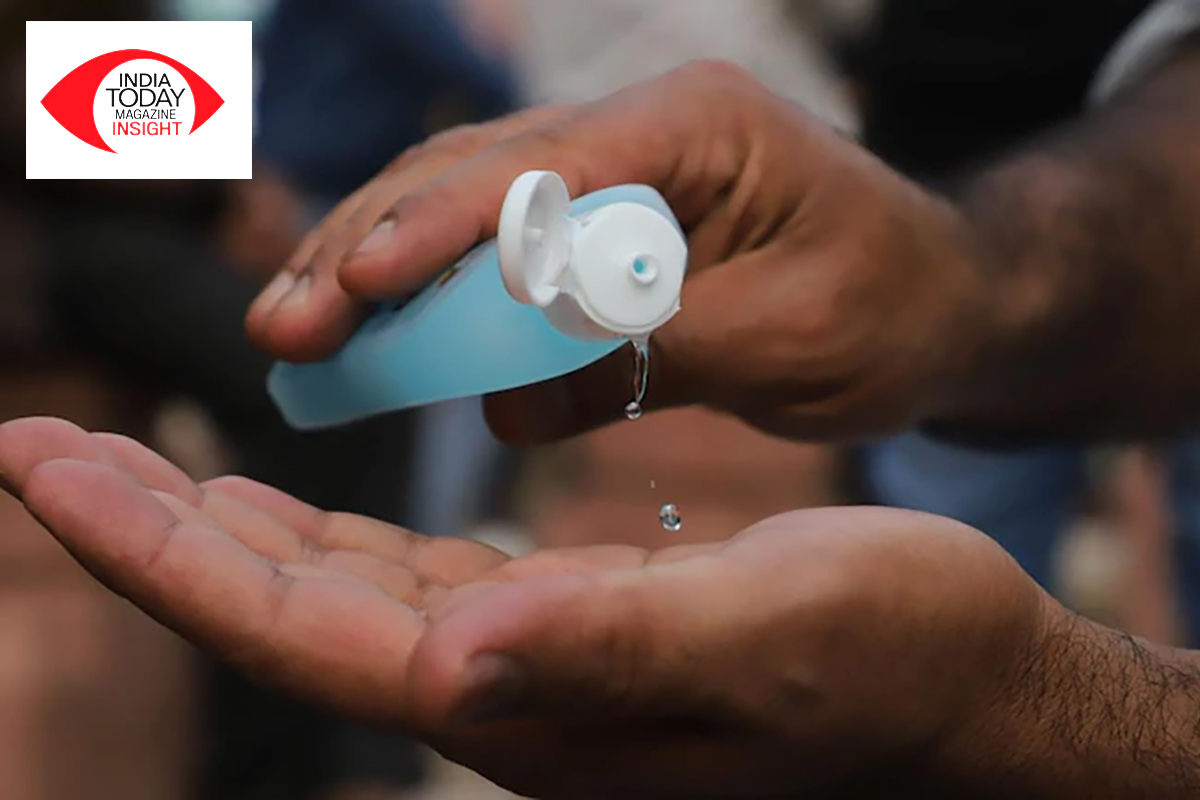Hand sanitisers: How much is too much? | India Today Insight

If you ask a group of people to raise their hands if they own over five bottles of sanitiser, chances are that the hands that are raised will be dry, with cracked and peeling skin. While the coronavirus pandemic has ensured that hand sanitisers are here to stay for the foreseeable future, their judicious use is also essential. Here’s what the experts say.
Beware the Bottle
“Overuse of hand sanitisers can lead to dryness and irritation of skin, hypersensitive irritant dermatitis and skin inflammation,” says Dr Praveen Gupta, director and head of Neurology at Fortis Hospital in Gurugram. Since the alcohol in the sanitiser causes excessive drying of the skin, it is important to be judicious while using it. Further, you should consult a doctor if you feel any kind of irritation. “Don’t use sanitisers [without good reason] every 15 minutes or every half hour; use them when you have touched an unclean surface or item, or anything that others may have touched as well,” says Dr Gupta.
“Not all commercially available chemicals are good for the skin,” adds Dr Karishma Kagodu, founder of Bengaluru-based Dr Karishma Aesthetics. “A good [alcohol content]—80 per cent ethanol or at least 75 per cent isopropyl alcohol—is recommended for sanitisers; they are meant to remove pathogens.” However, Dr Kagodu also warns that applying too much sanitiser causes excessive dryness. “The skin is a protective barrier, so the better moisturised, the healthier and stronger the barrier,” points out Dr Kiran Sethi, owner and founder of Delhi’s Isya Dermatology Clinic.
And though sanitiser use has become universal, the problem is that there are no restrictions on who can manufacture or sell such products. “Unlike medicines, there are no regulations on sanitisers, so there are no clear norms on [their alcohol content]—many sanitisers don’t even have alcohol,” says Dr Gupta. Therefore, it is important to be extra careful when choosing which sanitiser to purchase.
A Cocktail of Chemicals
“When a sanitiser is very fragrant, that implies addition of unnecessary chemicals that can worsen the irritation,” says Dr Gupta. In order to woo customers, many manufacturers add artificial fragrances. “’Fragrance’, ‘parabens’ and ‘phthalates’ are some common words we find on labels. But these are warnings that need to be taken seriously,” says says Rajni Ohri of Ohriya Ayurveda, a luxury beauty and wellness brand. Phthalates are endocrine disruptors that can affect human body development and reproduction. Parabens are chemicals that can negatively affect the functioning of hormones, fertility, birth outcomes and reproductive development.
Worse, there are even potential long-term consequences of overusing sanitisers, somewhat similar to the overuse of antibiotics. In September 2016, the US Food and Drug Administration issued a rule banning the use of triclosan, triclocarban, and 17 other chemicals in consumer hand and body antibacterial soaps and washes, because of health and bacterial resistance concerns. However, this ban does not apply to hand sanitisers, hand wipes, or antibacterial soaps used in a health care setting. So, many worry that overuse of hand sanitisers might contribute to the development of alcohol-resistant bacteria.
Bacteria can be Good
A paper published in the World Journal of Current Medical and Pharmaceutical Research, states, ‘as microbial flora also play an important role in human health, sanitiser overuse creates an imbalance between the good and bad bacteria in the digestive system, which leads to inflammatory bowel diseases, obesity, autism, etc.’ So, it’s best not to use too much. Dr Gupta advises wearing gloves if you find you have to frequently use sanitisers to maintain hygiene.
Ideally, when using a sanitiser, it should be allowed to dry on your hand. But in cases of overuse or unnecessary hurry, sometimes people do not wait the recommended time, getting on with their tasks while their hands are still wet. If this is done while eating—or when one accidentally touches the mouth with a hand still wet with sanitiser—it can lead to the chemicals being ingested. Over a period of time, this could also lead to alcohol poisoning, especially in young children. The US Center for Disease Control notes that children are particularly at risk of ingesting hand sanitiser, especially if it's scented, brightly coloured or attractively packaged.
Although sanitisers are needed in our fight against coronavirus, it is important to use it intelligently—when possible, wash your hands with soap instead (making sure to do so for at least 20 seconds). And above all, stay safe.
The content published on the website is for creating awareness and educating purposes only. This shall not be considered as a substitute for professional advice or prescription. The results mentioned on the website may vary from person to person as each case is different.

